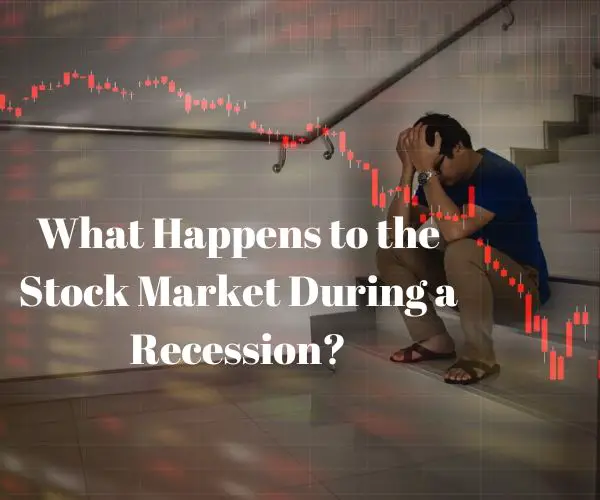Know What Happens to the Stock Market During a Recession
A recession can be a difficult time for investors, as economic downturns often result in stock market declines and increased volatility. During a recession, investors may become more risk-averse, leading to a decrease in demand for stocks and a subsequent decrease in stock prices.
However, it’s important to note that not all stocks are affected equally during a recession. Some industries, such as healthcare and consumer staples, tend to perform better than others, such as financials and consumer discretionary.
In this article, we’ll explore the impact of recessions on the stock market, the various factors that influence stock market performance during a downturn, and strategies that investors can adopt to successfully navigate a recession.
Key Takeaways:
- A recession can lead to decreased demand for stocks and subsequent declines in stock prices.
- Not all stocks are affected equally during a recession; some industries tend to perform better than others.
- Understanding how the stock market behaves during a recession can help investors make informed decisions.
- Factors such as the state of the economy, interest rates, corporate earnings, and investor psychology can all impact stock market performance during a recession.
- Investors can employ defensive or aggressive strategies during a recession, depending on their risk tolerance and investment goals.
Factors Influencing Stock Market Performance During a Recession
As we discussed earlier, the stock market can be heavily impacted by economic recessions. But what exactly influences how the market performs during these economic downturns?
There are various factors at play, including:
Overall state of the economy
The overall state of the economy, including GDP growth, inflation, and unemployment rates, can have a significant impact on stock market performance during a recession.
Interest rates
The level of interest rates set by central banks can influence stock prices. Lower interest rates can make borrowing cheaper for companies, which can increase their profits and drive up stock prices.
Corporate earnings
The earnings reports of publicly-traded companies can affect stock prices. If these reports indicate that a company is performing well despite the recession, investors are likely to be more confident in that company’s stock.
Investor psychology
Investor sentiment and emotions can play a role in stock market performance during a recession. Fear and panic may lead investors to sell off their stocks, while optimism and confidence can drive up prices
It’s important to keep in mind that these factors do not act in isolation. Instead, they interact with and influence one another, creating a complex web of market dynamics.
Despite this complexity, understanding these factors can be crucial for investors looking to navigate the stock market during a recession. By staying informed about these influences, investors can make more informed decisions about their investments and potentially mitigate the negative effects of a recession.
Historical Trends and Patterns in the Stock Market During Recessions
Examining historical trends and patterns in the stock market during recessions can provide insights into potential market behavior during future economic downturns. Some of the most notable historical trends and patterns in the stock market during recessions are:
Market Declines
During recessions, the stock market often experiences significant declines. For example, during the Great Recession of 2008, the S&P 500 index declined by over 50% from its peak in 2007 to its low in 2009. Similarly, during the Dotcom bubble burst in the early 2000s, the NASDAQ index declined by over 70% from its peak.
Recovery Periods
Historically, the stock market has typically experienced a recovery period following a recession. While the timing and pace of the recovery can vary, investors who hold onto their investments during the downturn and subsequent recovery period have historically been able to recoup their losses.
Defensive Sectors
During recessions, investors often shift towards defensive sectors, such as healthcare, utilities, and consumer staples. These sectors are less sensitive to economic changes and tend to perform better than other sectors during periods of economic uncertainty.
Interest Rates
Changes in interest rates can also have a significant impact on the stock market during a recession. The Federal Reserve often lowers interest rates during a recession to stimulate the economy, which can result in higher stock prices. However, if interest rates remain low for an extended period of time, it can also lead to inflation and a weaker currency, which can negatively impact the stock market.
It is important to note that past performance does not guarantee future results. While historical trends and patterns can provide valuable insights, each recession is unique and can be influenced by a variety of factors. As such, it is important for investors to remain vigilant and stay up-to-date on the current market conditions.
Investor Strategies During a Recession
Investing during a recession can be a daunting task, but there are several strategies that investors can adopt to navigate these challenging times. In this section, we will discuss some of the most effective investor strategies during a recession, including defensive and aggressive approaches.
Diversify Your Portfolio
One of the simplest and most effective ways to protect your investments during a recession is to diversify your portfolio. By investing in a variety of different asset classes and sectors, you can spread your risk and minimize the impact of any one company or industry performing poorly.
Value Investing
Another defensive strategy is to adopt a value investing approach. This involves looking for stocks that are undervalued by the market, but have strong fundamentals and long-term potential. By investing in these companies at a discount, you can position yourself for potential future gains.
Contrarian Investing
Contrarian investing is an aggressive strategy that involves going against the grain and investing in stocks that the market has overlooked or undervalued. By identifying companies that are currently out of favor with investors, contrarians can often find opportunities to buy low and sell high.
Timing the Market
Timing the market is a more advanced strategy that involves trying to predict when the market will bottom out, and then buying stocks at the right time. This can be a risky approach, as it is difficult to time the market with precision. However, for those who are able to do so successfully, it can be a very lucrative strategy.
Stay the Course
Finally, one of the most important strategies to remember during a recession is to stay the course. It can be easy to panic and sell off your investments during a downturn, but history has shown that the stock market tends to recover over the long run. By staying invested and sticking to your long-term investment plan, you can position yourself for potential future gains.
Whether you choose a defensive or aggressive strategy, the most important thing to remember during a recession is to stay informed, stay patient, and stay the course.
Conclusion
Understanding how the stock market behaves during a recession is crucial for investors. While it can be a difficult and volatile time, it can also present unique opportunities for those who are well-informed and prepared.
FAQ
What happens to the stock market during a recession?
During a recession, the stock market typically experiences a decline in stock prices. Economic downturns can lead to decreased consumer confidence and corporate earnings, resulting in a general sell-off of stocks by investors.
What are the factors influencing stock market performance during a recession?
Several factors can influence stock market performance during a recession. These include the overall state of the economy, interest rates set by central banks, corporate earnings reports, and investor psychology. External events, such as government policies and geopolitical tensions, can also impact market sentiment.
What are the historical trends and patterns in the stock market during recessions?
Historical analysis shows that stock market behavior during recessions can vary. Some recessions have seen sharp declines in stock prices, while others have experienced more gradual and volatile movements. It is important to consider past market reactions and events to gain insights into potential future market behavior during recessions.
What are some investor strategies during a recession?
Investors can adopt various strategies during a recession. Defensive approaches include diversifying their investment portfolios, focusing on value investing, and maintaining a long-term perspective. Some investors may also choose more aggressive strategies such as contrarian investing or attempting to time the market. Ultimately, the best strategy will depend on an individual’s risk tolerance and investment goals.
What should I take away from this article?
Understanding how the stock market behaves during a recession is crucial for investors. While recessions can be challenging times, they can also present unique investment opportunities. By studying historical trends, considering various factors influencing stock market performance, and adopting effective investor strategies, individuals can navigate the stock market more confidently during downturns.










